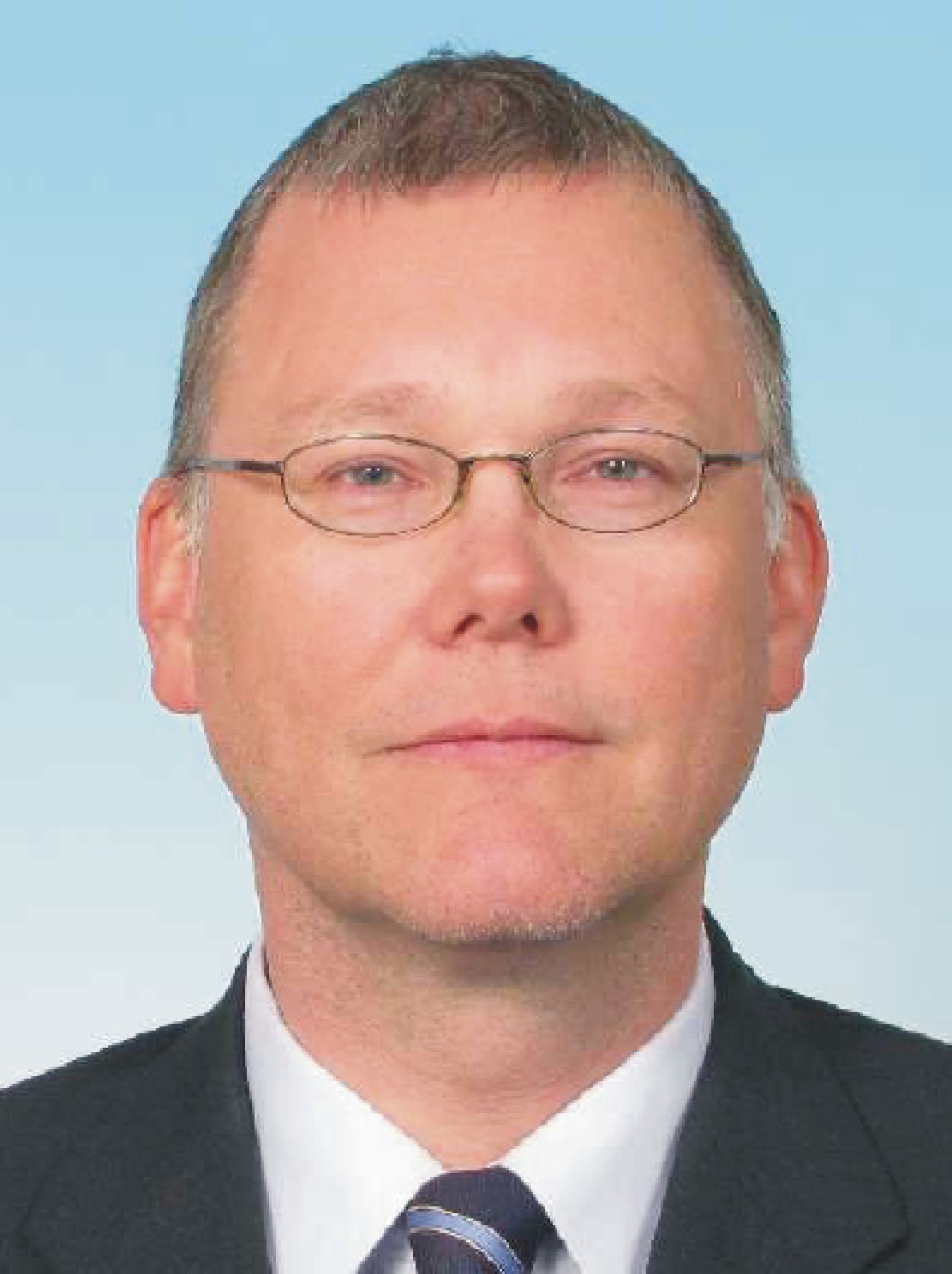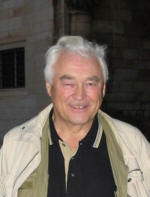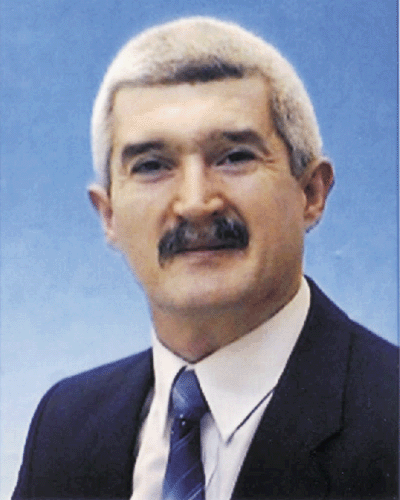 |
(Prof.dr.ir.Ing) Frank Leferink, B.Sc 1984, M.Sc. 1992, PhD 2001, Prof. 2003. Since 1984 employee of THALES Netherlands; Now Technical Authority and reponsible for EMC activities within THALES Netherlands. He is manager of the (virtual) Center of Excellence on EMC, comprising the group of more than 100 EMC engineers within the THALES group located at appr. 30 sites in France, United Kingdom, The Netherlands, Italy and Germany. Since 2003 he is (part-time, full-) professor EMC at the University of Twente. He is acting chair of the Telecommunication and EMC group, with 6 staff and 12 PhD researchers, 7 of them are involved in EMC research. |
| He published over 150 papers. He is teaching EMC and Transmission Media courses, and he is involved in training activities towards professionals. He is chair IEEE EMC Benelux, member of ISC EMC Europe, and associate editor of the IEEE Transactions on EMC. His main interest areas are EMI at PCB and IC level and innovative test techniques, such as reverberation chambers. | |
We as computer scientists or informatics technologists are at the forefront of 21st century technology. What directions should our efforts take? What is desirable or what should be avoided? Researchers and philosophers under the labels of transhumanism, humanity+; or H+ are defining respective goals and/or critically evaluating what is being done. It behoves us as technologists and scientists to be aware of related efforts and develop our own opinions based on better knowledge. This talk tries to contribute to the ongoing debate by offering some background information. The objectives of the intellectual and cultural movement H+ are the enhancement of human beings, like augmenting human capabilities and reducing human shortcomings. The transdisciplinarian approach ranges from the individual to the whole human species. There is an obvious interaction with the science fiction literature. The movement also addresses a growing body of criticism discussing potential dangers and benefits.
 |
Dr. Gottfried W. R. Luderer was appointed Professor, ISS Chair of Telecommunication, at Arizona State University in the Fall of 1990. His current research program in networking includes work in the areas of control of ISDN/Broadband ISDN networks, mobile communication networks, and multimedia communication, which ranges from call processing for intelligent network services to network management. Research emphasis is on advanced software technologies for development of telecommunication networks, as used in switches, for signaling and in network management, with a focus on object and component technology and formal definition techniques. From 1965 to 1989, Dr. Luderer was with |
| AT&T Bell Labs, at last directing research on next generation switch architectures, based on fast packet switching technology on the hardware side and object-oriented design technology on the software side, resulting in some of the earliest demonstration networks for multimedia communication. Dr. Luderer holds Diplomingenieur (M.S) and Dr.-Ing. (Ph.D) degrees in Electrical Engineering from the Technical University of Braunschweig, Germany. He holds two patents. While at Bell Labs, he taught at Stevens Institute of Technology in Hoboken, NJ, and at Princeton University. He is member of ACM, IEEE, IEEE Computer and Communication Societies. | |
Ethics form a special importance to practicing professionals, including engineers. Engineering professionals have a greater responsibility to society to do their jobs ethically, particularly since it requires specialized knowledge and skills and that affects public safety and welfare. Since the public cannot judge the quality of engineer work independently of practitioners, the profession cannot be governed solely by self-interest and who is paying the tab.
Some ethical questions facing engineers are unique to engineering while others are common to other professionals, however, since engineering has a direct and vital effect on the quality of life of people, the services provided by them must be dedicated to the protection of the public safety, health and welfare. Thus, engineers must perform under a standard of professional behavior requiring adherence to the highest principles of ethical conduct.
In spite of common perception, Engineering is not purely objective, "Black and White"? Moral dilemmas arise from conflicting demands, such as loyalty to company and colleagues, concern for public welfare, personal gain, ambition, etc.
Ethical standards are usually open-ended, relative and personal, and there is seldom a unique correct answer to ethical dilemmas, but rather typically a range of possible solutions to an ethical problem.
Ethical dilemmas are emphasized in engineering, and particularly in EMC engineering, where the public can not be expected to have any particular knowledge of this complex discipline, while even "educated" customers rarely have sufficient knowledge to judge engineering decisions and considerations. Interaction between the Customer and the engineer is therefore often based on trust... This is a fertile ground for ethical dilemmas, when resources, know how, and profit could result in potential conflict.
This presentation covers the fundamentals of Enginieering Ethics with realistic sample case studies being used to demonstrate the dilemmas The Code of Ethics of the IEEE is also presented and explained.
 |
Mr. Elya Joffe is employed by K.T.M. Project Engineering - an engineering consulting company in Israel, since 1987. He currently holds a position of the V.P. of Engineering and works as a Senior EMC engineering Specialist and consultant. Elya holds a B.ScEE in Electrical Engineering from the Ben Gurion University in Israel, is a Registered Professional Engineer and a iNARTE (International Association of Radio and telecommunications Engineer) certified EMC and ESD Control Engineer. Elya has over 25 years of experience in government and industry, in EMC/E3 (Electromagnetic Compatibility/Electromagnetic Environmental Effects) for electronic systems and platforms (in particular aircraft and aerospace). |
| He is actively involved, as an EMC/E3 Specialist, in the EMC design of commercial and defense systems, from circuits to full platforms. His work covers various fields in the discipline of EMC, such as NEMP and Lightning Protection design, as well as numerical modeling for solution of EMC Problems. Mr. Joffe is also well known in Israel and abroad for his activities in EMC training and education, and has authored, developed and presents many courses on Electromagnetic Compatibility and related topics. He has authored and coauthored over 30 papers in EMC and EMC-related topics, both in the IEEE Transactions on EMC and Broadcasting, as well as in the proceedings of International EMC Symposia. Mr. Joffe is Senior Member of IEEE, and has served as a member of the IEEE EMC Society of the Board of Directors since the year 2000. Elya served as the 2008-2009 President of the EMC Society of the IEEE and served as VP for Member Services and VP for Conferences and Symposia. He is also the Immediate Past Chairman of the Israel IEEE EMC Chapter. Mr. Joffe also served as a Distinguished Lecturer of the IEEE EMC Society, for the years 1999 through 2000. Mr. Joffe received several awards from the IEEE and EMC Society for his activities and outstanding contributions. | |
